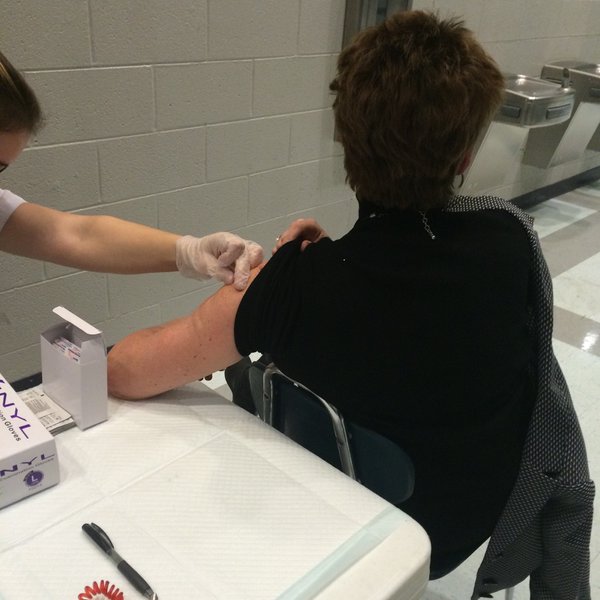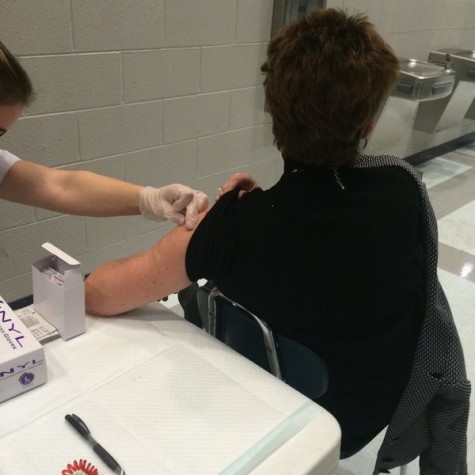Ways to Stay Well During the Holidays

Dr. Leisa Justus, principal, gets her annual flu shot at a shot clinic set up by Jamie Ramangkoun, senior, at a BHS basketball game. Jamie’s clinic was one of the Capstone projects for Blackman Collegiate Academy.

As temperatures begin to rise, the number of sniffles heard per minute in every public space seems to sky-rocket.
The best way to stay healthy this year is to know what you are up against and follow some simple precautions.
Flu
Millions of Americans are infected every season with symptoms including coughing, fever, fatigue, a sore throat, and congestion. More than 200,000 are hospitalized from complications every year.
The flu season varies, but it most commonly peaks in December through February and can start as early as October and end as late as May.
The CDC recommends getting a flu vaccine in October to be prepared for when the season starts, but it isn’t too late if you have not gotten one yet.
Common Cold
There are millions of cases of colds each year in the U.S. adults typically have 2-3 colds each year, and children will have more.
Winter is a popular time for colds, and symptoms include coughing, sneezing, runny nose, and sore throat.
There is no cure, but over-the-counter medicines can help with symptom relief.
Avoid the Plague!
Here are some tips that might help you stay sneeze-free!
–Wash your hands.
-Disinfect surfaces that are frequently touched.
–Cough or sneeze into a shirt sleeve or tissue, covering your nose and mouth.
–Stay home if you are sick and avoid close contact with others.
–Get plenty of rest.
–Stay hydrated.
–Relax. Stress releases hormones that can lead to an increased likelihood of sickness.
















